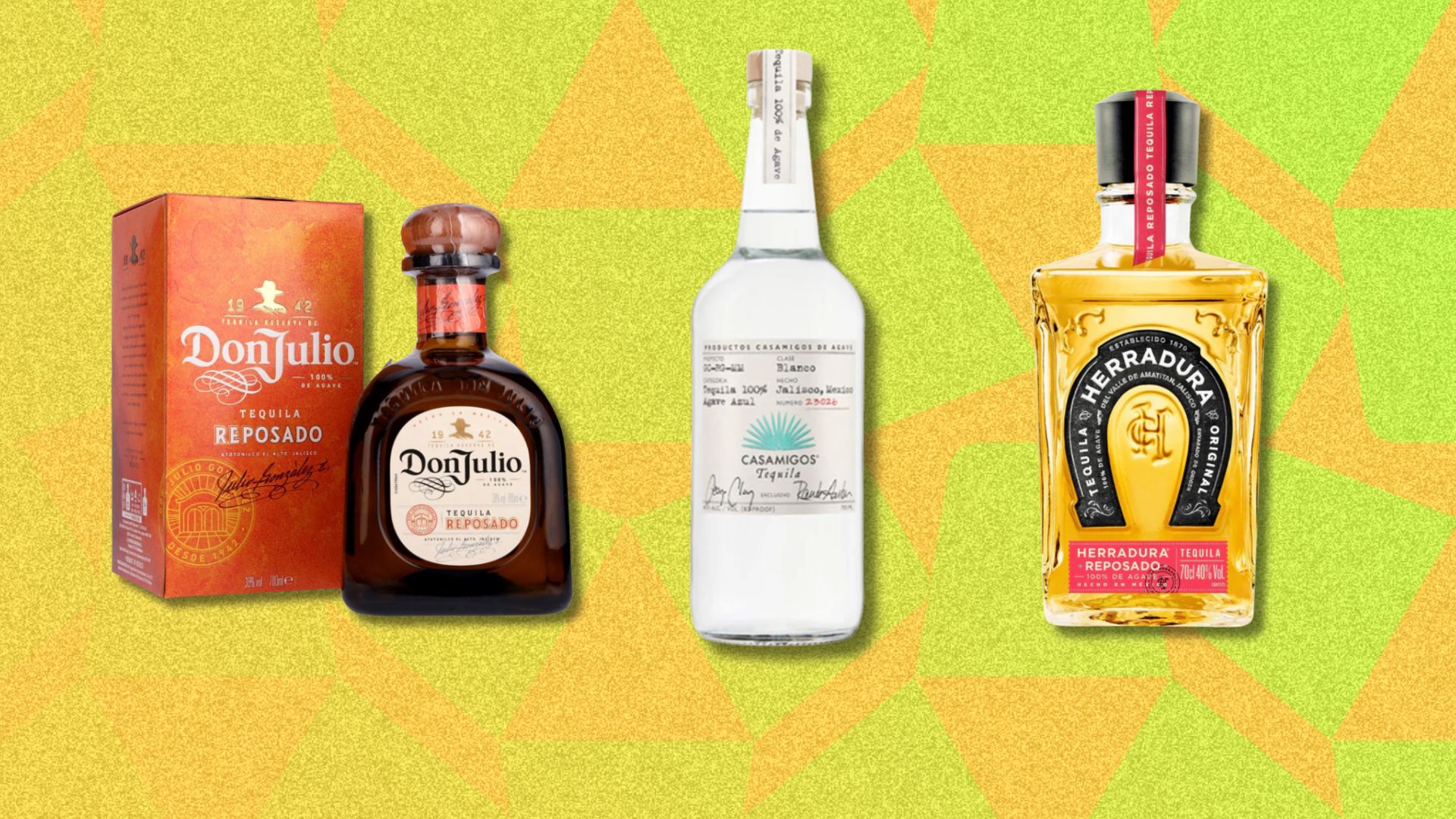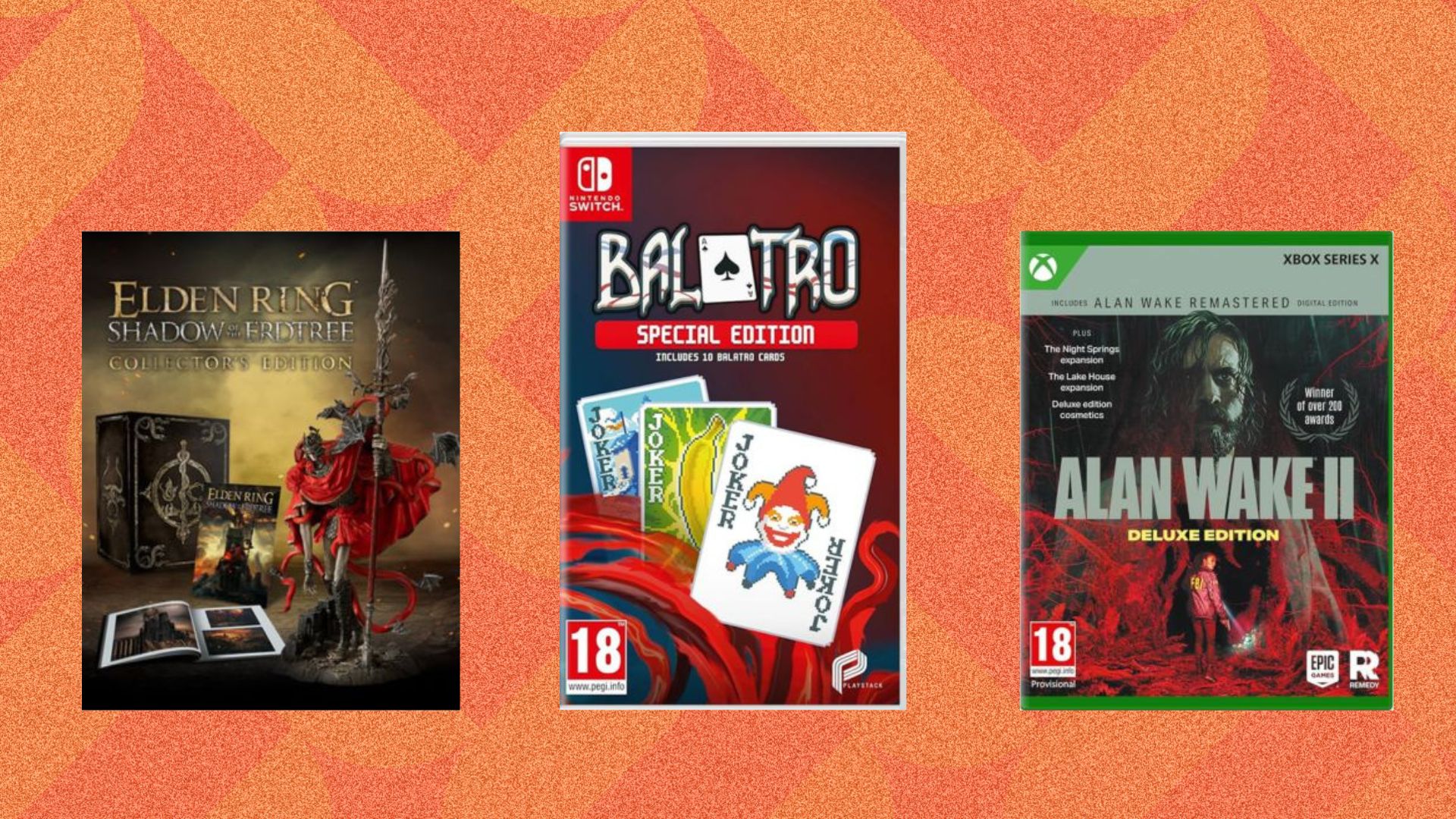
In the internet’s vast landfill of deliberately-aggravating ‘hot takes’, I appreciate that you could probably find “eating is bad” in amongst such similarly noxious detritus as “isn’t it time we stopped laughing?” and “the moon is problematic”. But, in my defence, I’m not actually saying eating is a horrible, sinful act that we should collectively stop, just that I, specifically and personally, don’t like it.
And whenever I attempt to broach the subject of not liking eating, people always get mortally offended - with good reason. For one, it’s often the unfortunate case that I unthinkingly announce this to someone who I’ve in-that-moment forgotten has cooked for me at some point. When I pitched this idea, my editor went very quiet and made a face as though she’d been spat on. “It’s interesting…” she replied, and then reminded me, mortifyingly, that she’d made me a lovely pasta dish the week before. When I say “I don’t really like eating,” I’m as good as deliberately projectile vomiting the effort, thought, energy and kindness that goes into preparing someone else a meal directly into that person’s face, and then having the audacity to act as though it was them who subjected me to an ordeal, which I apparently think I stoically endured in silence.
As a younger and even less discreet man, I would grimace my way through mealtimes, miserably pushing a lovingly prepared roast around my plate with the tortured anguish of someone being forced to flog themselves. “How ungrateful!” My poor, wounded mum would exclaim. “There are millions of starving kids in the world who’d love that.” I would usually then tell her that she should give it to them, then, but in retrospect, this was not an especially sensitive or practically achievable retort, and she was absolutely right. It is ungrateful to simply dislike food. Even beyond the extreme case of starvation, given the myriad complicated relationships and afflictions many people experience around eating - and to varying degrees of severity - it seems, at the very least, glib to simply dismiss it so plainly, so ungratefully. I can eat food, I just don’t like it. Waaah. It’s not for me. Boo-hoo. I mostly feel as though I must resign myself to it, or else I will keel over and die. Shut up.

You don’t even have to have been personally unfortunate enough to cook for me to take offence. More often, you are actually just one of the many who actually enjoy eating, who might describe themselves as a ‘foodie’, who thinks of eating as one of the few joyous reprieves from an existence which is mostly otherwise characterised by disappointment and toil. I’ll say something like “I don’t really like eating…” and you’ll get all affronted and say something like “You don’t like eating?! Just wait until you’ve tried my cooking!…” It’s a lovely gesture, and I do appreciate it, but ultimately a futile one. Better cooks than you have tried. In a truly wasted-on-me fluke-of-the-universe, there was a stage in my career where I was inexplicably sent to restaurants, good restaurants - and on one occasion, a Michelin-starred one - to ‘review’ them, with all the expertise that a lifetime of happily choosing Pot Noodles over other, arguably, tastier options will give you. I had a perfectly nice time at each, but none provided a sufficiently revelatory experience to change my position on the matter: eating doesn’t really give me any pleasure.
I will try and articulate better than simply stating “I don’t like eating” over and over, and have sought out others who are equally food-ambivalent, mostly in an attempt to prove it’s not just me being a picky bastard. That said, a definite ‘pickiness’ did plague my childhood (even more so the friends’ parents who tried in vain to accommodate me), and thankfully subsided a fair deal as I got older, but I still find fish and eggs utterly revolting. Individually, each ranks extremely highly in the league table of Foodstuffs People Incredulously Go “[X]! How Can You Not Like [X]?!” About. Together, fastidiously avoiding both render most menus completely inedible.
My first interviewee, James, had similar aversions to staple favourites. “I don’t like a lot of foods that people take for granted. Savoury and spicy food. Pizzas, Chinese meals, curries, fried chicken, flavoured meats. I also struggle with some fruit and veg… It’s not a choice. If I try anything particularly strong that I don’t like, I’ll start heaving.” I know this feeling. It’s not that I merely dislike eggs and fish, the taste does violent, wretched things to my gag reflex. Given that both are considered edible by most of the world’s populace, I realise that neither should make your mouth feel like a sewage pipe filled with especially putrid slurry, and that it’s an unfortunate idiosyncrasy of my own taste-buds that they do. I’ve checked, and I’m not even allergic, which would actually give me some medical excuse – but I find both so intensely disagreeable that the smell alone is sometimes enough to cause involuntarily and instantaneous bile reaction.

It’s not that uncommon to have certain food groups that are off-limits to your tastes, but it extends beyond this – my whole diet is hamstrung by other factors. James describes his as “about as bland as it gets,” and this is where we differ. I hate bland, and infuriatingly, beyond an acute ability to discern eggs and fish as ‘vile’, my palate is so dismally underdeveloped as to be virtually non-existent. I also have, in conjunction with a perma-cold, a limited sense of smell, which accounts for 90% of taste. This means nuances of flavour are completely imperceptible to me, unless they lie at an extreme ends of the spectrum. I can taste salt, sweet and spicy, and as such, these are my favourites. Also tomato. I think I mostly like tomato because it’s already inherently sweet, and it’s also acceptable to add the other two flavours to it to your heart’s content, which – in an almost-certainly life-shortening habit I’ve picked up from my dear old Nan – I absolutely do.
Get exclusive shortlists, celebrity interviews and the best deals on the products you care about, straight to your inbox.
Hers was the generation of rationing and scarcity, where ingredients were hard to come by and Making Do was what you did. She saw no need to adjust this ethos after VE Day. She would batch-cook lasagnes and cottage pies, which would pile up in casserole dishes at the back of her fridge, where they would ferment and congeal until the next visit from her relatives. They tasted horrible, of course, but she was also of a time where salt was considered ‘good for your health’, and so she would allow me to empty the best part of an entire shaker into whatever was in front of me. Suddenly, it tasted of something, and I could eat it. In contrast, my mum’s more adept cooking tasted of less, because she made the fatal decision to be concerned for my health, and so tried to limit my salt intake. “It’s bad for you,” she would complain. “You haven’t even tasted it yet!” I hadn’t, but no matter what the meal was, I knew it needed more salt.
Instead of a long Eeyore-esque list of woe-is-me minor debilitations, I will quickly mention here that many of my teeth came through without enamel, resulting in practically all of my molars being removed, and that I have dyspraxia, which makes for a truly ineffective and often alarming method of operating cutlery. This means breaking down food, both before entering my mouth and inside it, takes fucking ages. Eating any meal that requires a mild amount of mastication with me is akin to sitting opposite a gif of someone chewing forever. It’s infuriating for you, and it’s somehow even less fun for me. I churn something I already initially found flavourless around and around in my mouth, failing to make any significant dent on it with my blunt teeth, until it becomes a drab mulchy paste of horrible asbestos-like texture, drained of every last drop of ‘flavour’ to the point it’s become a pure vacuum of taste. I’ve recently taken to trying to push through and force myself to swallow, but I regularly fuck up, start choking, and have to retch it back up again, like a mother bird. It’s woefully pathetic to be an adult lacking such fundamental faculties as ‘swallowing correctly’, and I fully expect to die trying to ingest a tasteless ham before I hit 40.
Now, while I don’t like ‘bland’ food per se, I prefer anything that requires very little effort to ‘eat’, which act as a ‘base’; to be doused in salt, or condiments of the sweet and spicy variety – pasta, noodles, rice. (An utterly squalid period of my school career saw me regularly get plain rice for lunch, which I would cover in salt. It was lush.) I still punt for pretty much anything Jamie Oliver wants banning from cafeterias, the stuff that’s been pumped full of sodium, MSG, sugar, e-numbers and chemicals that will no-doubt soon be made illegal in order to disguise their dubious origins, content and flavour of the product. And, ideally, I’ll still douse those in yet more salt and sauce.
Whenever I’ve had rare moments of clarity; moments where I’ve thought: probably shouldn’t spend your entire twenties eating sausage rolls covered in Encona and ready meals with extra soy sauce, mate, everyone you know is either concerned or thinks you’re doing some cry-for-help arrested-development schtick, time to get a salad I reckon; I’ve got a few bites in and had to retreat to my loyal friends in my condiments drawer, almost entirely negating any health benefits I might have briefly exposed myself to.

But – even when I’ve indulged in artery-clogging condiment excess – I still don’t find I enjoy eating. This reckless pact I’ve made with the savoury devil seems to be a necessary trade-off which allows me to find food sufficiently palatable enough to eat, rather than because I love and crave it.
“Food is a massive chore to eat,” Moya tells me. “It takes up time and space in my day. I’m purely a functional eater.” I feel similarly. My appetite is perpetually weak and I don’t derive pleasure from eating, and so I often psychologically treat meals as annoying chores of survival, something I don’t really want but have to do, a task which gets in the way of the rest of my life. Elon Musk finds meals an irritating hurdle to making his daily billion, and if he were to invent some meal-replacing pill, or some sort of Nicorette patch, but for nourishment, I would absolutely invest. It’s a dangerous thought pattern to get into, because to diminish the importance of meals is to barely register when I’ve missed them, and this leads to a physique which I will generously describe as ‘gaunt.’ “I frequently skip meals and would happily buy like one of those Cookie Crunch things with cream that they sell in coffee shops and call it lunch,” say Nick. “Because it’s somewhat filling, I guess. At least more than a liquid.”
I’m trying to get better, but I find the sheer time eating takes infuriating. The easy option, of course, is fast-food and microwaveable meals, but in trying to achieve something approaching ‘maturity’, I’ve started to recognise these are both one-way tickets to massive heart failure - among other health risks severe enough to warrant red exclamation marks all over the packaging - and expensive tickets at that. Turns out cooking is both healthier and cheaper. And yet, obviously, I’m shit at it.
“The enjoyment or reward of cooking is disparaged by the process of thinking about what to make, what’s healthy, what I need to stay alive and functioning well,” Nick tells me. “The task of making something myself makes me feel lethargy and exhaustion which takes any enjoyment out of it. I like those Pizza Express pizzas you can just put in the oven.”
“Because my diet’s so limited, I’ve never really needed to learn how to cook anything other than the most basic food,” says James. “I tried cooking mash myself once or twice when I was a fresher and it came out horrible, so I just buy microwaveable mash instead.”
These are drearily relatable experiences for me. I don’t know what I like, or that it’s even really possible for me to fully like something, so most attempts at something ‘ambitious’ (i.e. you can’t just heat it up in boiling water) result in frustration and failure. I realise I’ve poured money and time and enthusiasm into making something which tastes dreadful, because I’m an inept cook, and which I probably wouldn’t even appreciate even if I hadn’t royally fucked up the recipe. Which I invariably have. I’m left with another pile of amorphous mulch that I have to indiscriminately cover in condiments, feeling like I might as well have just gone with a yellow-label dinner and saved myself most of an evening.

This is, I think, one of the more dispiriting aspects of not enjoying eating. I can recognise in other people a genuine love for food – for the process of making it, of eating it, of savouring it, of remembering it. Once I’ve finished eating a meal, the memory of it almost instantly dissolves into part of my mind my synapses don’t consider worth archiving, but I have friends who don’t just remember all the revelatory dishes they’ve had in their lives, but can recall - with a totally believable precision and excitement - the taste of those meals. It returns to them not only as a fond memory, but one they can actually sense. How wonderful that must be, and how strange it is to have a weird white-noise void instead.
To have a developed palette and a zeal for food is to have a kind of Pavlovian synesthesia, which – when trained – allows you to intuitively know which ingredients work together and how to improvise a meal; which gives you the ability to read recipes in a book and start to salivate at the thought of a meal that you’ve never tried before but will soon make; which means you can simply browse pictures on Instagram and tell if the food will taste good, or hear descriptions of friends’ meals they’ve while had on holiday, and somehow, by some vicarious osmosis, enjoy them yourself; which lets you actually appreciate and distinguish the subtlety and strengths of flavours, the nuances of their combinations, and the richness of their textures. I don’t have that. Recipe books are just manuals for meals, food photography leaves me completely unmoved, and meals taste of fuck all, or salt. I suppose it’s like staring at a painting and seeing only marks of paint, or hearing only arbitrary sounds instead of music, or feeling only the mechanical, physical processes of sex instead of intimacy. It’s to experience something as its composite, rudimentary parts, rather than how humans are supposed to enjoy it.
“It’s one of those things people don’t really understand or are particularly sympathetic about,” muses James, forlornly. “They aren’t necessarily always willing to accommodate it, probably because they think I’m just being fussy for the sake of it. If I’m in a restaurant where everyone else can eat something off the menu and I’m stumped, or if I’m at an event and there’s a set menu which I can’t eat from, I’m left caught between not wanting to make myself ill by eating something I don’t like, and not wanting to upset or offend those around me.” He’s right. People are constantly indignant - furious, even - that someone wouldn’t treat eating with the same reverence they do. It’s a lifetime of being mildly chastised to heavily berated for eating The Wrong Thing. “Why would you eat that?! You need a more balanced diet! How can you not like eggs and fish?!”

I often find myself more perplexed than I should be when people announce they ‘don’t like’ football. I have a reasonable enough level of empathy and understanding to appreciate that they don’t and the various reasons why they wouldn’t, but because I love and have always loved the sport, there’s a dim, childlike part of me that finds it mystifying other people can’t see what I see. You’re not watching it right, I tell the nonbelievers. It’s not just 22 people pointlessly hoofing a ball up and down some grass, it’s everything else beyond that. You’re missing out! But of course, if you don’t love it, and can’t love it, you’re not going to be converted by someone who fundamentally thinks you just should. And you are missing out, not from any net happiness you might get from suddenly deciding you like it, but because it’s such a widely loved game that I can’t even begin to fathom the tedious amount of conversation that’s happening around, in front and sometimes with you, that you’re completely unable to participate in.
Eating isn’t just enjoyed at an individual level, it’s a truly communal experience - a far more universal one than football. A shared love of gastronomy transcends national and cultural barriers. The chance to sample a particular cuisine is enough of a motivator for people to travel halfway around the world. The prospect of sharing a meal with loved ones is enough to get most through their day. And this is the most disheartening aspect of my eating anhedonia. I can recognise that there is something innately joyous and beautiful in the act of cooking for someone else, and to be cooked for. It’s a generosity that doesn’t necessitate the expense of a gift, or need a particular event in the calendar to be given. It relies mainly on thought, careful consideration, commitment and kindness. It’s something my mum thanklessly sacrificed her evenings trying to give to me, as did my editor, as did all those who have cooked me meals over the years. I can appreciate the affection behind the act of cooking, I just wish I could fully appreciate the extent of it. And I wish I was able to reciprocate.
(Body images: Rex/iStock)

